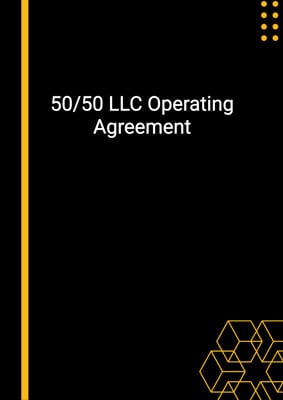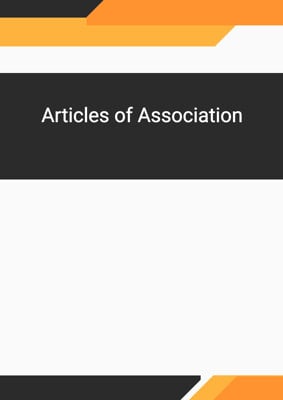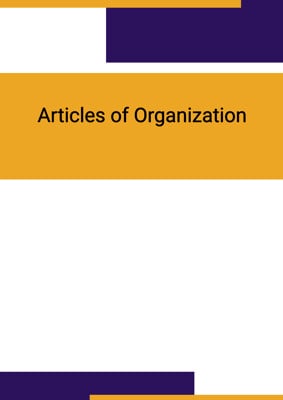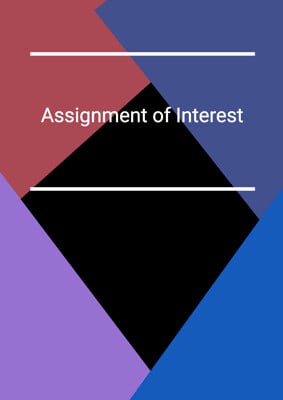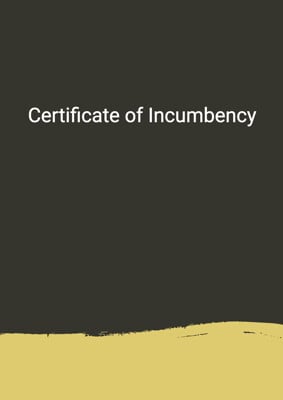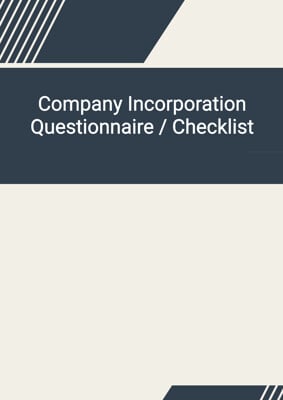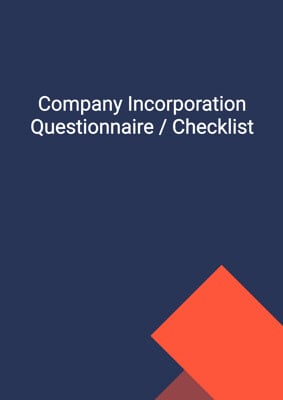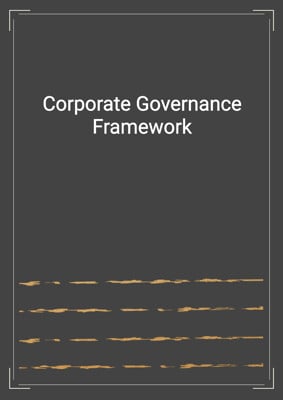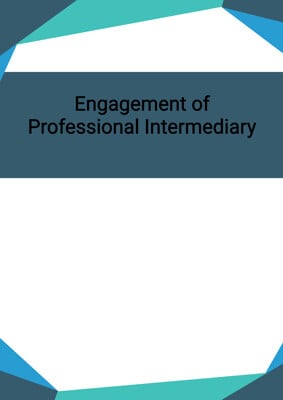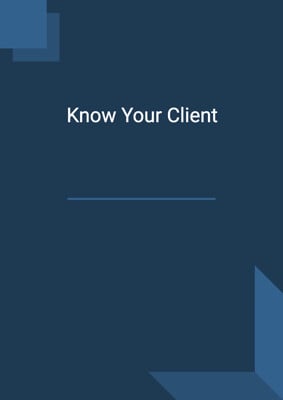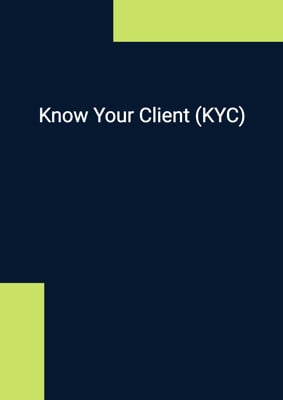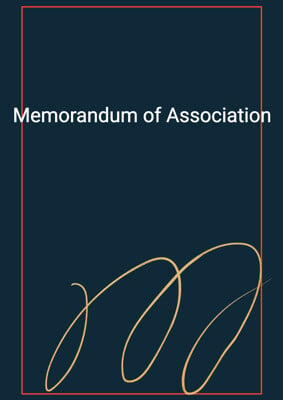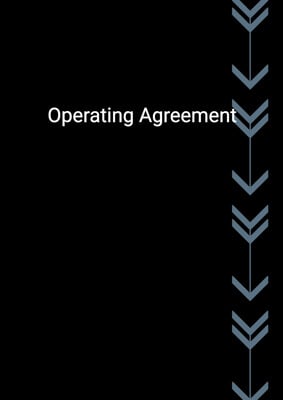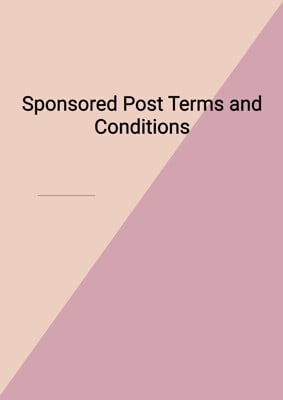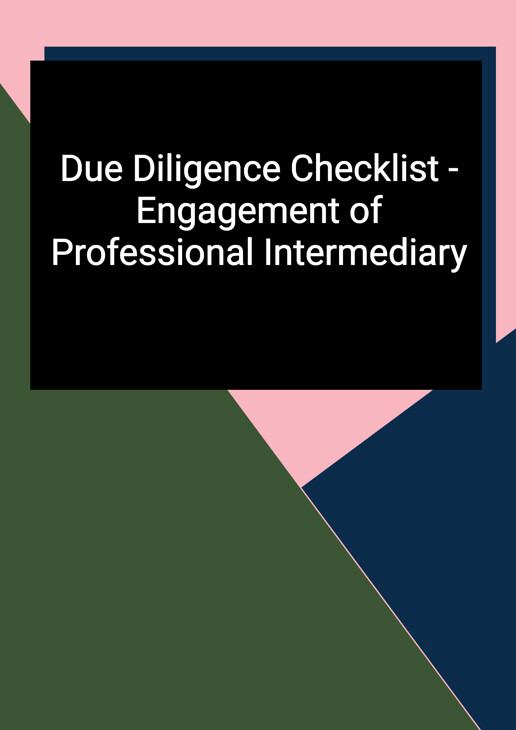
Due Diligence Checklist - Engagement of Professional Intermediary
Company
A due diligence checklist for the engagement of a professional intermediary is a comprehensive tool that helps organizations evaluate and assess the qualifications, credibility, and suitability of a potential intermediary before entering into a business relationship. This checklist includes a series of critical questions and criteria to investigate the intermediary's background, experience, reputation, financial stability, compliance with legal and regulatory requirements, and adherence to ethical standards. By using this checklist, organizations can ensure they make informed decisions and minimize risks when engaging a professional intermediary for their business needs.
How to Tailor the Document for Your Need?
01
Create Document
Click "Create Document" button and the document will be prepared with your account details automatically filled in.
02
Fill Information
Please fill in any additional information by following the step-by-step guide on the left hand side of the preview document and click the "Next" button.
03
Get Document
When you are done, click the "Get Document" button and you can download the document in Word or PDF format.
04
Review Document
Please review the document carefully and make any final modifications to ensure that the details are correct before publication / distribution.
Document Preview
Document Description
A due diligence checklist for the engagement of a professional intermediary is a comprehensive tool that helps organizations evaluate and assess the qualifications, credibility, and suitability of a potential intermediary before entering into a business relationship. This checklist includes a series of critical questions and criteria to investigate the intermediary's background, experience, reputation, financial stability, compliance with legal and regulatory requirements, and adherence to ethical standards. By using this checklist, organizations can ensure they make informed decisions and minimize risks when engaging a professional intermediary for their business needs.
The due diligence checklist for the engagement of a professional intermediary typically begins by verifying the intermediary's legal name, address, and contact information. It then moves on to investigating the intermediary's history, including previous engagements, partnerships, and affiliations, as well as their experience in the relevant industry or field. This helps assess their qualifications and expertise.
The reputation and references section of the checklist involves conducting a reputation check by reviewing online sources, professional networks, and industry forums. It also includes seeking references from previous clients and partners to gather feedback on the intermediary's performance, reliability, and professionalism. Any past or ongoing litigation, disputes, or regulatory actions involving the intermediary are also investigated.
Financial stability is a crucial aspect that the checklist covers. Organizations typically request financial statements, including income statements, balance sheets, and cash statements, to assess the intermediary's financial health and stability. Additionally, they verify the intermediary's insurance coverage to ensure it is adequate for potential risks and liabilities.
Compliance and licensing are also important considerations. The checklist ensures that the intermediary holds the necessary licenses, permits, and certifications required to operate legally in the relevant jurisdiction. It also reviews their compliance with industry-specific regulations, such as anti-money laundering (AML) and know your customer (KYC) requirements, as well as their adherence to relevant laws and regulations.
Ethical standards and code of conduct are assessed to ensure alignment with the organization's values. The checklist investigates the intermediary's commitment to diversity, inclusion, and environmental sustainability, if applicable. It also verifies their commitment to avoiding conflicts of interest and maintaining confidentiality.
Risk management is another critical aspect covered in the checklist. Organizations evaluate the intermediary's risk management processes and procedures to ensure they align with their own risk tolerance and mitigation strategies. This includes reviewing disaster recovery and business continuity plans.
Lastly, the checklist addresses professional fees and terms. It seeks to obtain a clear understanding of the intermediary's fee structure, payment terms, invoicing procedures, and any additional expenses or reimbursements. The intermediary's contract or engagement agreement is thoroughly reviewed to ensure it adequately protects the organization's interests and specifies key deliverables, timelines, and termination clauses.
By following this due diligence checklist, organizations can make well-informed decisions when engaging a professional intermediary, mitigating potential risks and ensuring a successful and mutually beneficial business relationship.
Not the right document?
Don’t worry, we have thousands of documents for you to choose from:
